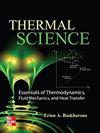基于云计算的太阳能集热光电跟踪伺服驱动系统
IF 1.1
4区 工程技术
Q4 THERMODYNAMICS
引用次数: 0
摘要
为了解决太阳能发电成本高、利用率低的问题,笔者提出了一种基于云计算的太阳能集热光电跟踪伺服驱动系统。通过在核心控制器PLC中建立PID和自适应模糊PID控制的MATLAB/SIMULINK仿真数学模型,比较分析了在单位阶跃信号和扰动作用下,不同控制策略下跟踪控制系统的响应特性。实验结果表明,自适应模糊PID控制算法的超调量很小,几乎为零,响应速度最快,过渡时间最短,系统在0.02秒左右达到稳定。综上所述,自适应模糊PID控制下的太阳能聚光器跟踪控制系统不仅具有良好的跟踪控制精度,而且具有抗干扰能力强、稳定性好的优点,大大提高了太阳能聚光器跟踪控制系统的综合性能。本文章由计算机程序翻译,如有差异,请以英文原文为准。
Solar heat collection photoelectric tracking servo drive system based on cloud computing
In order to solve the problem of high cost and low utilization of solar power generation, the author proposed a solar heat collection photoelectric tracking servo drive system based on cloud computing. By establishing the MATLAB/SIMULINK simulation mathematical model of PID and adaptive fuzzy PID control in the core controller PLC, the authors compare and analyze the response characteristics of the tracking control system under different control strategies under the action of unit step signal and disturbance. The experimental results show that the overshoot of the adaptive fuzzy PID control algorithm is very small, almost zero, the response speed is the fastest, the transition time is the shortest, the system reaches stability at about 0.02 second. In conclusion the tracking control system of solar concentrator under adaptive fuzzy PID control not only has good tracking control accuracy, but also has the advantages of strong anti-interference ability and good stability, which greatly improves the comprehensive performance of the tracking control system of solar concentrator.
求助全文
通过发布文献求助,成功后即可免费获取论文全文。
去求助
来源期刊

Thermal Science
工程技术-热力学
CiteScore
2.70
自引率
29.40%
发文量
399
审稿时长
5 months
期刊介绍:
The main aims of Thermal Science
to publish papers giving results of the fundamental and applied research in different, but closely connected fields:
fluid mechanics (mainly turbulent flows), heat transfer, mass transfer, combustion and chemical processes
in single, and specifically in multi-phase and multi-component flows
in high-temperature chemically reacting flows
processes present in thermal engineering, energy generating or consuming equipment, process and chemical engineering equipment and devices, ecological engineering,
The important characteristic of the journal is the orientation to the fundamental results of the investigations of different physical and chemical processes, always jointly present in real conditions, and their mutual influence. To publish papers written by experts from different fields: mechanical engineering, chemical engineering, fluid dynamics, thermodynamics and related fields. To inform international scientific community about the recent, and most prominent fundamental results achieved in the South-East European region, and particularly in Serbia, and - vice versa - to inform the scientific community from South-East European Region about recent fundamental and applied scientific achievements in developed countries, serving as a basis for technology development. To achieve international standards of the published papers, by the engagement of experts from different countries in the International Advisory board.
 求助内容:
求助内容: 应助结果提醒方式:
应助结果提醒方式:


